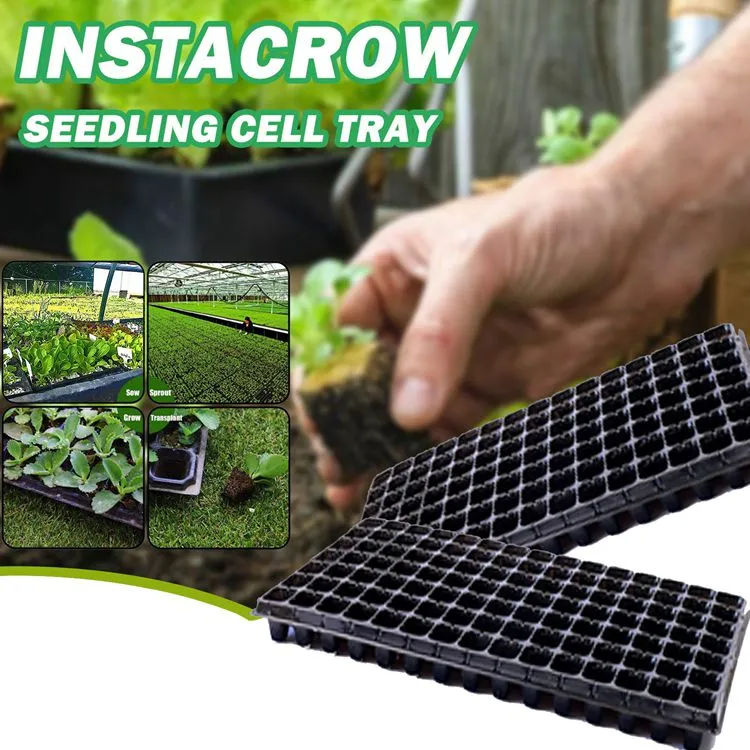10 Benefits of Using Recycled Plastic Plant Pots
Oct. 21, 2024
Eco-Friendly Gardening: The Top Benefits of Using Recycled Plastic Plant Pots
Gardening enthusiasts and eco-conscious individuals alike are increasingly turning to recycled plastic plant pots as a sustainable option. These pots not only reduce environmental impact but also offer practical solutions to common gardening challenges. Let’s explore how recycled plastic plant pots can benefit both your garden and the planet.
1. Reducing Plastic Waste
One of the key advantages of using recycled plastic plant pots is their contribution to waste reduction. By reusing post-consumer plastics, these pots help divert waste from landfills and oceans, offering a second life to materials that would otherwise contribute to pollution.
2. Durability and Longevity
Recycled plastic pots are highly durable and weather-resistant. Unlike traditional pots made from other materials, they don’t crack or degrade easily under harsh sunlight, rain, or cold temperatures, ensuring they last for many seasons. This longevity makes them a cost-effective choice for avid gardeners.
3. Lightweight and Easy to Handle
For gardeners who frequently rearrange their plants, recycled plastic pots provide a lightweight alternative to ceramic or clay pots. This makes them easier to move, especially when filled with soil and plants, reducing strain on your back and making gardening more enjoyable.

4. Versatile and Stylish Designs
Thanks to modern manufacturing processes, recycled plastic pots come in a wide range of designs, colors, and shapes, allowing you to choose styles that suit both indoor and outdoor settings. Whether you prefer minimalist designs or bold, colorful planters, you can find recycled options that meet your aesthetic preferences.
5. Promoting Sustainable Practices
Using recycled plastic pots supports sustainable manufacturing practices. These pots are often made through closed-loop recycling systems, where used plastics are collected, processed, and repurposed into new products without generating significant waste or emissions.
Featured content:Are Frozen Fruits and Vegetables as Good as Fresh Options?
Induction Bending for Duplex and Super Duplex Steel: 2025 Insights
What Are the Benefits of Induction Annealing Machines?
Delicious Frozen Fruits and Vegetables for Perfect Smoothies
Enhance Your Home with Window Screen Roll Solutions
Polyether Defoamer vs. Silicone Defoamer: Which Is Better?
Essential Auto Oil Seal Maintenance Tips for 2025
6. Affordable Gardening Solution
Recycled plastic pots are generally more affordable than other types of pots. Since they are made from repurposed materials, the production costs are lower, and these savings are passed on to consumers. This makes eco-friendly gardening accessible to a wider audience.
7. Easy Maintenance
Cleaning and maintaining recycled plastic pots is a breeze. Unlike clay pots, which can become stained or develop mold, plastic pots can be easily washed and reused season after season. This keeps your garden looking fresh and clean without the hassle of frequent replacements.
8. Resistant to Soil Contamination
Another benefit of recycled plastic pots is that they are non-porous, meaning they do not absorb harmful chemicals or water, unlike some porous materials like clay. This helps prevent soil contamination, ensuring that your plants grow in a healthy environment.
9. Contributing to Circular Economy
When you choose recycled plastic pots, you’re helping to promote a circular economy. This system emphasizes reducing waste, reusing materials, and recycling products at the end of their life cycle. By supporting this cycle, you play a part in minimizing resource depletion and protecting natural ecosystems.
10. Insulation for Root Systems
Recycled plastic pots provide excellent insulation for root systems, helping to maintain stable soil temperatures. This is especially beneficial during colder months when plant roots are vulnerable to frost. The added insulation can protect plants from extreme temperature fluctuations, promoting healthier growth.
In conclusion, recycled plastic plant pots offer numerous benefits that go beyond their eco-friendly nature. From durability and affordability to style and ease of use, they provide practical solutions for gardeners looking to make a positive impact on the environment while maintaining a beautiful and thriving garden.
Featured content:Bronze Wolf Statue vs. Silver Wolf Sculpture: Which Stands Out?
Revolutionizing Wind Turbine Shafts: Induction Forging Benefits
What Are the Benefits of Frozen Fruit and Veggie Mix?
7 Key Features of USRP 5G for Next-Gen Wireless Applications
NBR O Ring vs. Other Seal Materials: Which is Best?
What Are the Best Applications for Steel Grating?
Why Is Drip Tape for Sale Essential Now?
340
0
0
All Comments (0)
Previous: Are Hami Melon Seeds Safe for Kids and Allergic Consumers?
Next: None
Related Articles
If you are interested in sending in a Guest Blogger Submission,welcome to write for us!




Comments